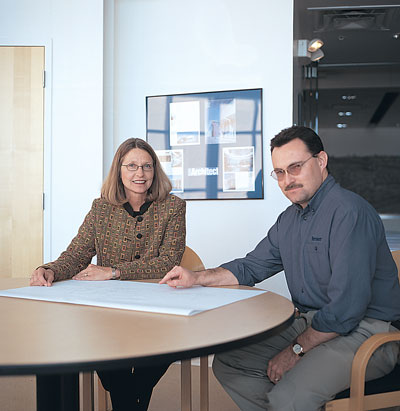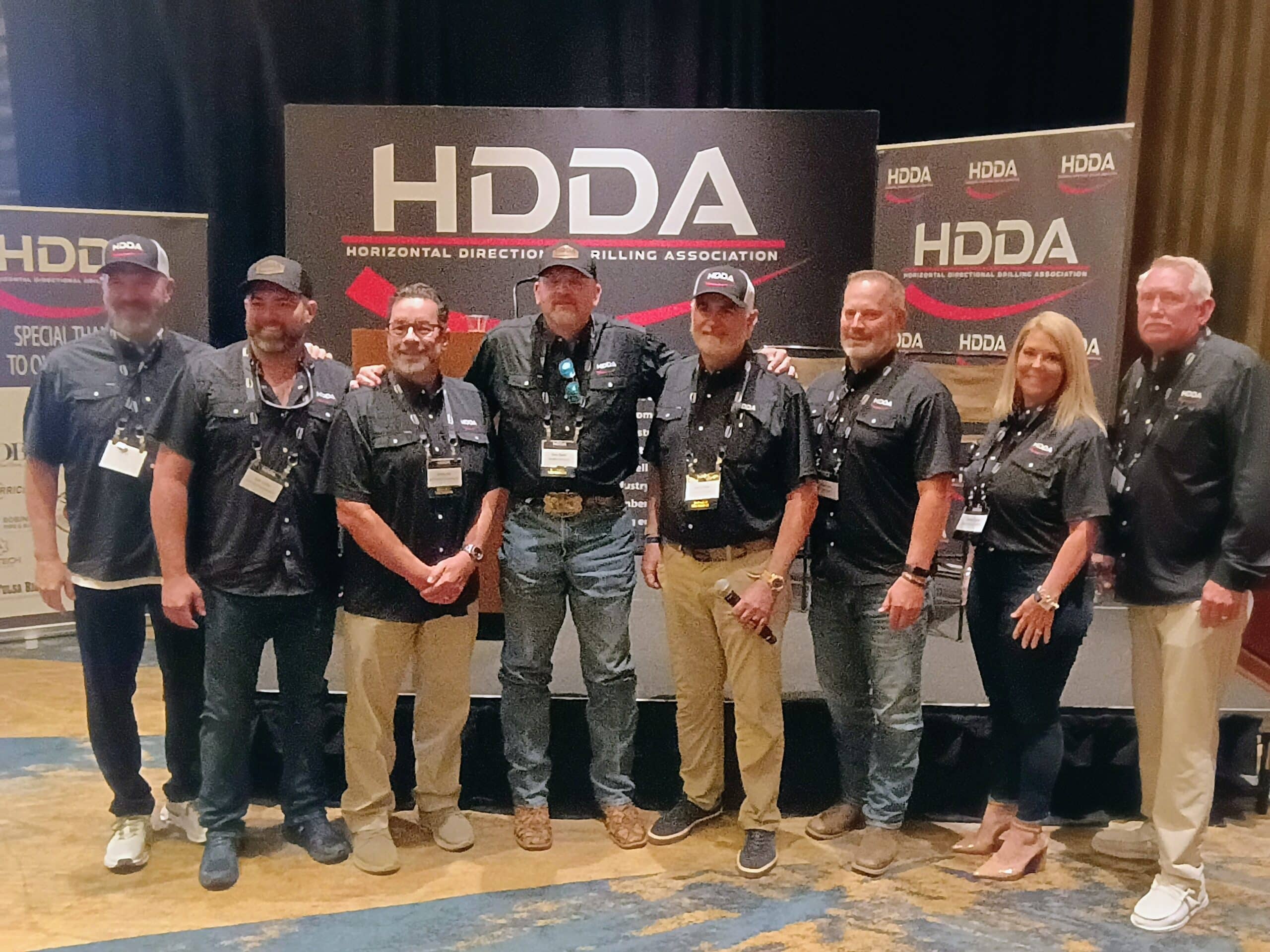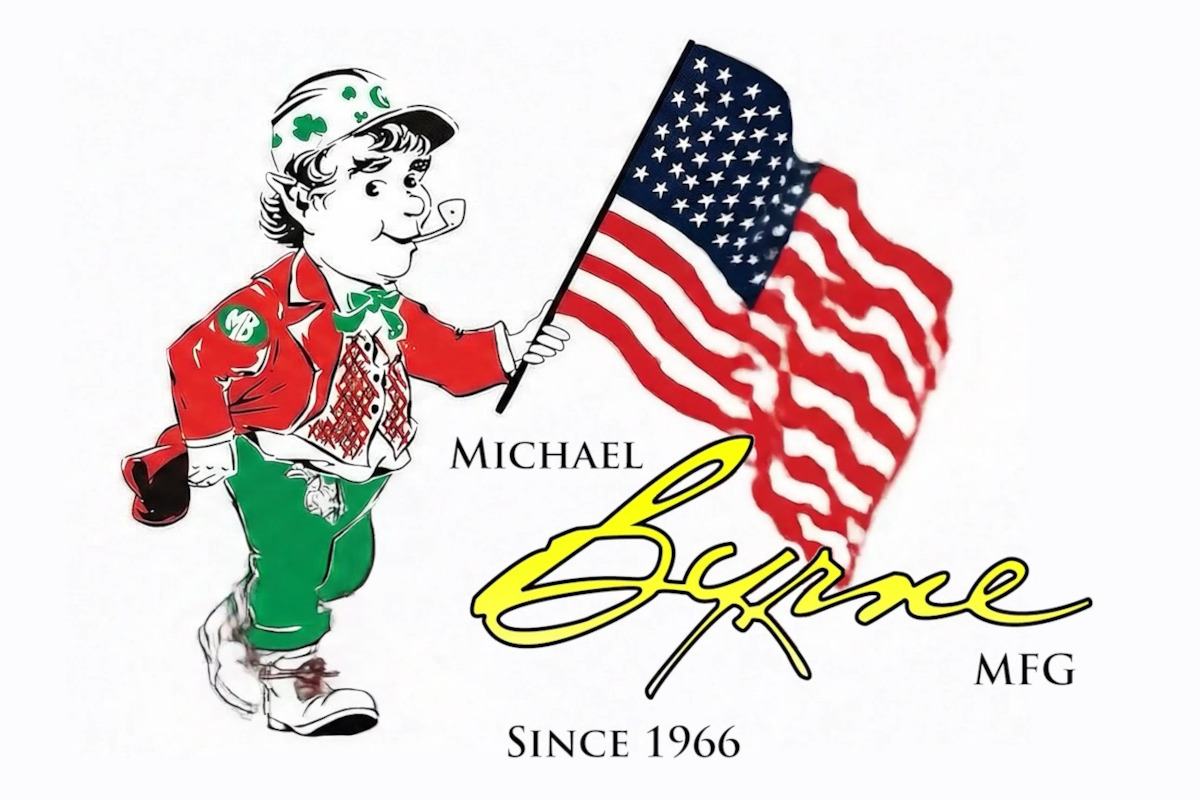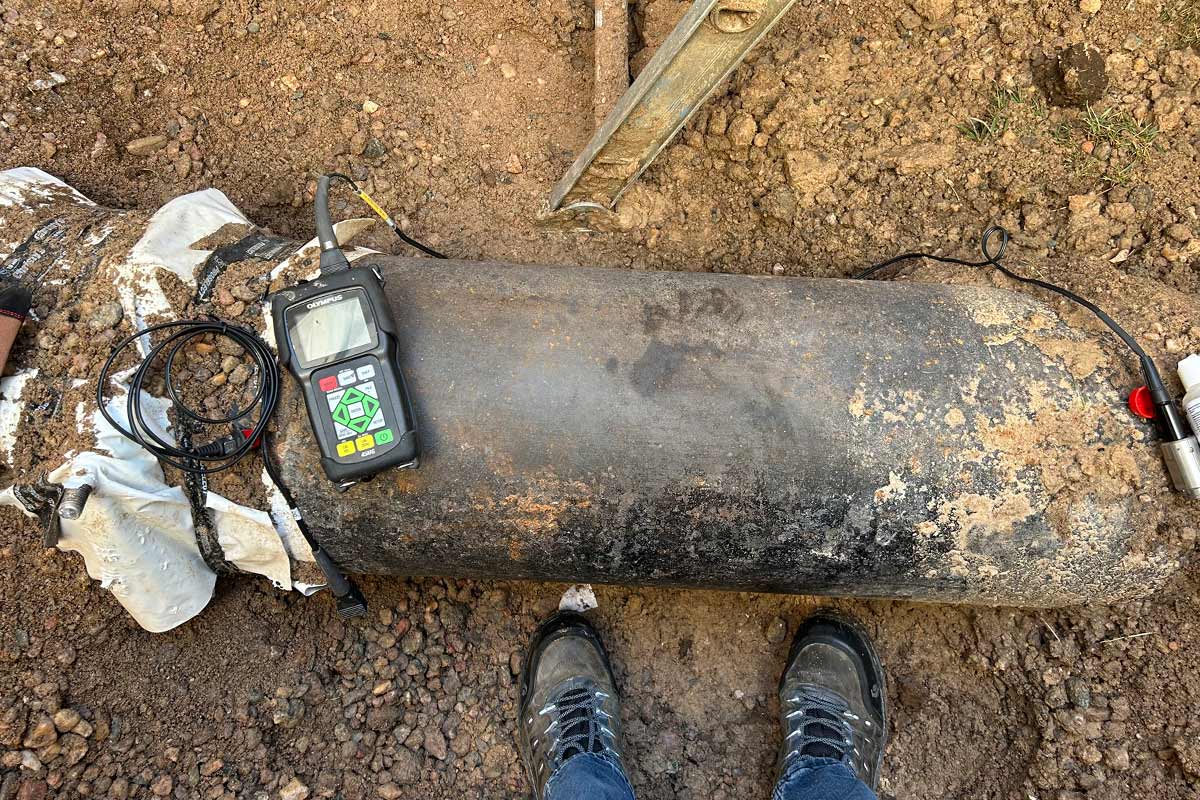
Women in Trenchless: Mary Andringa Puts Family Values to Work
February 20, 2003

Mary Andringa’s commitment to service is evident in her eagerness to listen to dealers,
customers and factory employees. “We treat our employees, dealer network and
customers with respect,” she says.
Mary Vermeer-Andringa is a businesswoman committed to values. Not only does she follow the Golden Rule in her daily life, but she also applies biblical principles to management practices.
If you asked Andringa for advice on how to run a solid organization, or just how to be successful with business in general, she would be happy to share some insight — and, it’s likely to be the same whether you’re a man or a woman.
As president and COO of Vermeer Mfg. Co. in Pella, Iowa, Andringa credits simple, core values that many strive to follow, yet few actually practice, for the ongoing success of Vermeer. She’s been with the organization for more than 20 years and works closely with her brother, Bob Vermeer, chairman and CEO, on all facets of the business. She’s worked her way up through the company, proving herself at each level. Her primary focus now is on continuous improvement, from engineering through equipment distribution.
She says she thinks the reason why the family-owned business has been an Iowa staple and industrial trade giant for 55 years is that Vermeer and its leaders believe in the community; they believe in employees; they’re honest; they’re good stewards of resources; and they invest profit back into the company.
Andringa says it’s these philosophies that have directed both her personal journey and that of the organization. Some might think being a woman in an industry where men are the majority would present challenges aside from the usual aspects of running a business. Andringa has not, in her opinion, been treated differently. She believes in self-improvement and she works hard to earn respect.
“I read and listen to a lot of books on tape — and sometimes have two or three books going at a time,” Andringa says. “One or two are on business and leadership and the other is usually motivational.
“And, we treat our employees, dealer network and customers with respect,” she adds. “My brother, Bob, has always emphasized positive relationships in business and we’ve carried that through. You match that up with the basic principles that we follow, and you’re more likely to be respected by those you deal with.”
The values embraced and advocated by the Vermeer family have influenced Andringa profoundly. “I have always deeply appreciated my mother as a role model,” she says. “She has always kept her priorities straight in terms of family and faith; she has a very giving spirit and is a very humble person.”
Andringa’s father, Gary Vermeer, the company’s founder, has also played a key role in her life. “He has always had simple measurements for how the company is doing,” she says. “And he instilled in us that we should strive for continuous improvement, and that we should always look for opportunities in the marketplace.
“Our father, through the years, has also asked, ‘are you having fun?’ He believes you must have passion in what you do.”
In addition to possessing a strong work ethic and admirable values, Andringa has other characteristics of a leader: she is focused on planning and serious about follow-through. She’s worked hard to address
concerns brought by employees and customers. That, too, has garnered respect.
Joining the Family Business
Andringa was an established educator 20 years ago. She taught kindergarten, K-6 music, and she directed and taught at a preschool. Then, her brothers started talking to her about the increasing number of women in business-leadership positions.
They suggested she consider a path within Vermeer.
The Vermeer family has always encouraged the pursuit of a career outside the business before joining their company. They say this ensures a healthy perspective of the working world and provides necessary business experience.
Although those guidelines are now more formalized than when she graduated in 1972 from Calvin College in Grand Rapids, Mich., Andringa says she would have pursued her lifelong dream of teaching before joining Vermeer anyway. And the experience gives her a different perspective and skill set that she can apply to the company’s advantage as a Vermeer executive, she says. “Since I was five years old, I’ve loved teaching and speaking to small or large groups. Now I routinely speak to dealer groups and employees, and I’ve been asked over the last few years to mentor other women,” she notes.
Andringa has also put her zest for education into practice in other ways. For example, in the 1980s, she authored the “Four Ps” structure, which signifies the foundation of the organization: People, Principles, Product and Profit.
She believes that by articulating in simple terms how much Vermeer values its employees, the Golden Rule, honesty, excellence, commitment to innovation and financial stability, everyone Vermeer works with understands the company perspective.
“We’ve shared that ‘Four P’ philosophy with employees, numerous customer groups and our dealer organization,” she says. “We believe it’s important for them to understand the steadfast values we adhere to.”

Andringa, in front of a mural in the Vermeer museum, recalls the first time she saw directional drilling: “I remember thinking that it was going to be so state-of-the-art, so revolutionary,
that we’d have difficulty filling the pipeline.”
Trenchless Impacts Business
Some may not realize how expansive the Vermeer product line is. Trenchless has only been part of the company’s success for a decade — about a fifth of its history. Trenchers, brush chippers, stump cutters, tree spades and agricultural equipment were primary focuses prior to the HDD explosion with the fiber optics generation. Those lines still flourish today.
Andringa recalls watching the first Vermeer horizontal directional drill, a D7 model, coming off the line in the early 1990s.
“I remember thinking that it was going to be so state-of-the-art, so revolutionary, that we’d have difficulty filling the pipeline,” she says. “And we did have trouble meeting demand for a while during the telecom growth period.”
Now, with an economic downturn, Andringa and her brother, Bob, have been faced with several challenges, including keeping teams motivated and helping plot the direction for the organization that continues to identify and satisfy customer demand, and that ensures financial stability.
“Personally, my faith has helped me tremendously through tough times,” she says. “My husband and children have also been extremely supportive.”
Andringa feels she has a good balance between work and family. She has a 27-year-old son, Jason, who is an engineer at NASA’s Jet Propulsion Laboratory (JPL), and a 25-year-old daughter, Mindi, who works with continuous improvement for an injection-molding manufacturer. Her husband, Dr. Dale Andringa, is chief medical officer at Wellmark Blue Cross and Blue Shield, an Iowa-based insurance company.
Communicating with people outside of the family but within the organization also continues to give Andringa encouragement.
“I’m talking with dealers and salespeople that are seeing opportunities,” she says. “This gives me trust that we are working hard to do our best in a tough economy and we will bounce back as the economy grows.”
Going Forward
Andringa says she believes the HDD market will come back, but not with the same intensity that it had before. So while Vermeer continues to be a leader in the trenchless industry, they will still be committed to product variety. Already, the company is expanding trenching and environmental opportunities, including its line of horizontal grinders. In January, Vermeer unveiled a mini excavator — a completely new venture. And the company has plans to further increase offerings to the rental market this year.
The innovation continues even within the Vermeer trenchless product group. The company is establishing itself as a leader in vacuum/excavation systems and technology designed to enhance bore planning and locating processes. And, as Vermeer expands the jumbo HDD line with machines in the more than 100,000 lbs. (of thrust and pullback) category, company officials continue to look at sales potential with large pipe installations.
“This is a challenging time, and we realize we need to be flexible,” she says. “We will continue to expand and broaden where the customers have need, giving them value.

Andringa’s focus with the company is on continuous improvement, from engineering
through equipment distribution. Here, she goes over plans with
Ed Savage, Vermeer’s trenchless product manager.
“I have always had a sincere appreciation for engineering and innovation, and I have great confidence that we can continue to develop and build products that will impact the market,” she adds.
She likens the Vermeer product diversity strategy to a financial portfolio: when one area is down, you can be thankful for the others that prosper. “That is exactly what has afforded Vermeer growth opportunities in the past,” she says. “It’s also allowed us to learn about new markets.”
Andringa believes continued ingenuity is the key to finding those areas that will flourish … those markets will also continue to solidify Vermeer as a “total solutions provider.”
And, as Vermeer officials develop and expand product groups, they truly intend to be number one or number two in the industry for that equipment category, she says. In addition to product diversity and being a solutions provider to niche markets, Andringa believes the lean culture is also vital to the recipe
for growth.
She is passionate about eliminating waste in processes and has been instrumental over the last several years in training production teams, administrative departments and the sales force in the Kaizen philosophies. “Kaizen” is a Japanese word meaning gradual and orderly, continuous improvement. This business strategy involves everyone in an organization working together to make positive adjustments without large capital investments. It involves being lean in all aspects, from staffing to workflow.
Family succession is also an obvious issue when discussing the future of the organization. Vermeer is committed to remaining family-owned. Andringa says the third generation is already showing interest in working in the business; in fact, all have had opportunities to be involved through summer internships and part-time jobs. Three of the third-generation children have expressed a specific desire to return after two to five years in other careers. Two of them are women.
What advice does she have for them as they consider joining the trenchless industry? What wisdom can she share with any woman who ponders a path toward company leadership?
“I still believe that any individual will be successful if he or she has passion for the company’s values, treats others with respect, possesses good planning skills and follows up on a timely basis,” Andringa says. “Also, communication is key with internal and external customers, and a leader must be willing to lead change.”
And even though women might be in the trenchless industry’s minority now, Andringa believes there will be more opportunities for women in this business in the future. Why?
“First of all,” she says, “as one of our women customers has said, using HDD requires more finesse than strength, and it also employs extensive pre-planning. But also, there are more women in manufacturing and more women that are willing to get their hands dirty.”
Andringa meets many women routinely on both the supplier and customer sides. She has developed a kinship
with them, she says — but not particularly for reasons one might think. She enjoys talking with them about industry trends and organizational leadership.
Andringa would probably not consider herself a pioneer in that regard. She’s just a businesswoman who has progressed and earned respect by staying true to basic principles. The result is that she now co-leads one of the most highly regarded organizations in the trenchless industry.
Anyone having a persona, presence and track record comparable to hers would be considered successful by any standard, whether they’re a man or a woman. Andringa might hesitantly agree with calling it “success.” She’d likely be more comfortable just saying that she’s constantly improving both herself and the family business, applying traditional core values, and leading from the heart.
Jeff White is a technical writer, based in Des Moines, Iowa.




